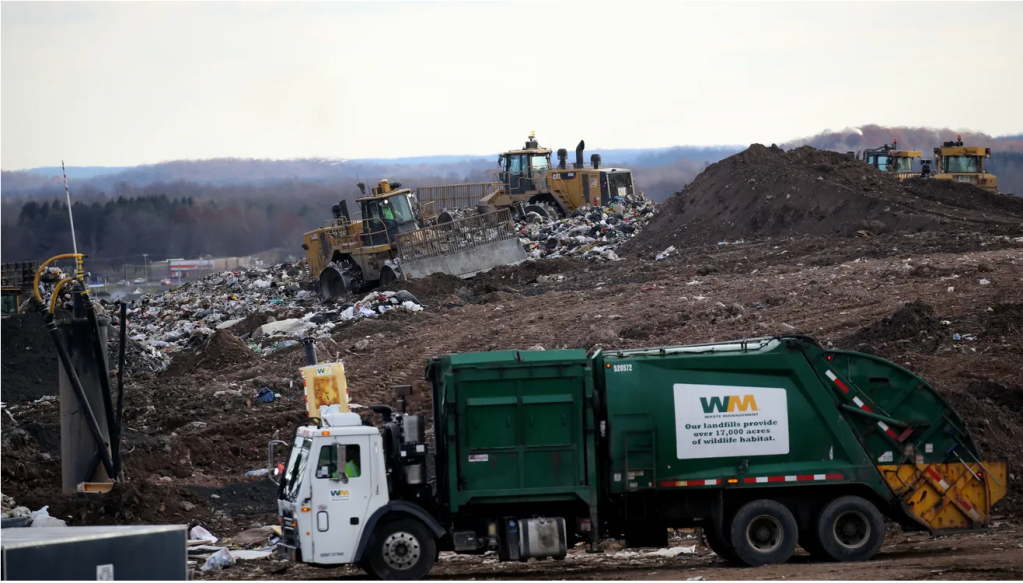Do courts have authority to rule on whether the state’s failure to abate air pollution around the High Acres Landfill violates the constitutional rights of the facility’s neighbors?
That’s the key question in a lawsuit appeal in Rochester that is shaping up as a crucial test case for New York State’s Green Amendment.
Attorneys for the landfill’s neighbors argued this week that YES, the Green Amendment obligates state courts to act in defense of their clients’ explicit constitutional right to breathe clean air.
They were answering an appeal filed in December by State Attorney General Letitia James that argues NO: the Green Amendment alone does not empower courts to judge the state’s anti-pollution efforts — at least not without enabling legislation that defines “clean air” and the state’s enforcement duties.
James represents the state Department of Environmental Conservation in the case. She asserts that the Green Amendment, which went into effect Jan. 1, 2022, does not unseat the DEC as the ultimate arbiter of pollution disputes in the state.
But on that point, James and the DEC were on the losing end of a December 2022 ruling in Monroe County Supreme Court.
“Complying with the Constitution is not optional for a state agency,” Judge John J. Ark wrote in his landmark order that is now being appealed.
The outcome has major policy implications for Gov. Kathy Hochul because the regulatory status quo that James advocates would preserve a reliable outlet for New York City’s garbage.
“Letitia is letting state government off the hook,” said Ken Camera, a recently retired 12-year veteran of the Geneva City Council.
The state’s three largest municipal waste landfills — Seneca Meadows Inc., High Acres and the Ontario County Landfill — all lie within 30 miles of Geneva in the Finger Lakes region. New York City relies on all three as dump sites for its waste, and all three violate odor regulations.
The largest, SMI, also falls…
Read the full article here








